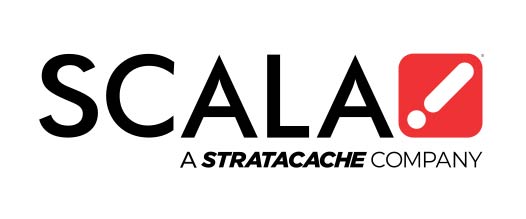Drive Thru Pulling Ahead for QSRs in Australia and New Zealand
The drive-thru lane has reigned in quick service for 70 years and remains an unwavering access point to convenient food, contributing 60%–70% sales for some QSRs before the pandemic hit. Fast food drive thrus generated a revenue of $8.3 billion in March 2020, an increase of $300 million as compared to 2019.
The Australian QSR industry is no exception. Currently, there are 50,000 fast food outlets in Australia with a market size of $20 billion.
New Zealand’s QSR industry has also grown significantly over the past few years. QSRs represent 30.1% of the food industry. Over the next 5 years, revenue from takeaways is forecasted to reach a CAGR of 1.7%.
The COVID-19 pandemic accelerated the need for QSRs to digitalise and adapt to the new normal. With the imposition of dine-in restrictions, drive thrus have played a critical role in helping QSRs maintain their mark with customers, and contributed to 90% of the sales revenue. In April – June 2020, drive-thru visits increased by 26%, representing 42% of all restaurant visits.
Today, the drive-thru lane is undergoing a digital upheaval, a complete evolution that is rethinking the customer experience, while driving operational efficiencies. An increasing number of QSRs are leveraging digital signage in the drive thru to engage and interact with their customers.

-
Top QSRs Turn to the Drive Thru
There is a reason why drive thru has performed so well over the last year; innovative QSRs have completely reimagined the drive-thru experience in response to the pandemic, so that customers can purchase conveniently, efficiently, and above all, safely.
The World’s first “Drive Thru Only” opened in Newcastle to serve hungry Australians with 68 million online orders made each year. Customers could order through a KFC app or website and pick up their order at the drive-thru window. With a total of 5 lanes, 2 lanes were dedicated to traditional order options, while the other 3 were order pickup lanes. The QSR sought to offer a seamless customer experience through this investment in innovation.
Taco Bell also launched a new store concept: Taco Bell Go Mobile. Aimed at enhancing the digital and drive-thru experiences, the effort will give stores two drive-thru lanes—a traditional lane, and a priority, pick-up lane with rapid service for customers who order via the Taco Bell app. Taco Bell Go Mobile will offer contactless curbside pick-up and tablet ordering service.
Burger King is also modernizing the customer experience for 10,000 of its drive-thrus, including installation of 40,000 screens.
It is clear these top players are focused on their digital strategies, as they tie loyalty and digital signage together with new, innovative services.
Why Digital Signage is the Core Tech for Drive Thru
Restaurant digital signage has modernized the way restaurants communicate and advertise with their customers. Today, restaurant digital signage is being used to improve visibility and enhance the customer experience.
● Improve Efficiency: Easy to read and visually captivating digital menu boards prompt quicker customer buying decisions and speed up the ordering process. The margin for errors and delays are minimized, and this contributes to an efficient service system.
End-to-end drive-thru service averages 4 minutes 15 seconds, and restaurants are trying to shave off further time to make service even faster and more effective.
● Increased Sales: A recent report showed that drive thrus contribute to 70% of total sales. Digital menu boards placed at the start of the drive thru can display the latest offers, high- margin items and combos to upsell and cross-sell. Artificial intelligence and digital sensors can even be embedded for personalized menus to be featured for targeted personas.
● Update Menus Easily: Digital menu boards can easily be updated to showcase new items and arouse interest. Day parting makes menus easier to read by displaying items that can be ordered at the time, whether breakfast, lunch or dinner menus.
● Elevate Customer Experience: Personalized welcome and thank you messages can be implemented on drive-thru digital signs to create a pleasant, welcoming vibe and elevate the customer experience. Self-service kiosks that offer contactless payment serve as a means for faster and safe checkout for customers.
Vivid images and videos create a more engaging, decisive experience. Infotainment can also be featured to enhance the overall ordering experience and boost engagement.
Enhance the Drive-thru with Scala’s solutions
Australian and New Zealand QSRs are capitalizing on digital signage at drive thrus to improve customer satisfaction, increase staff productivity, expedite delivery orders and drive revenue. This trend is expected to surge in the new normal.
Scala’s QSR digital signage solutions help QSRs build their bottom line with digital guest personalization, insights and suggestive selling. Many global QSR brands have deployed Scala’s solutions to enhance the drive-thru experience. Find out more here and kickstart your marketing transformation for your QSR business today.
Esther Chew is the Sr. Manager – Corp Comm & Marketing at STRATACACHE Asia-Pacific and is responsible for developing and implementing the internal and external communications strategy and programmes across Asia-Pacific. She drives the company’s corporate image and brand messaging through integrated and strategic communications leveraging various platforms such as executive communication, client communication, digital marketing, media relations and B2B events.


